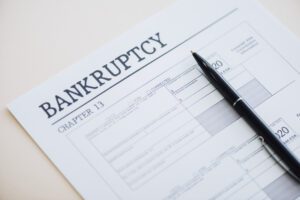Bankruptcy often emerges as a beacon of hope for those mired in financial turmoil, particularly when burdened by tax debt. Tax obligations, especially when compounded by interest and penalties, can quickly overwhelm even the most diligent individual. The question arises: can bankruptcy provide a solution for those seeking relief from tax debt? Answering this requires understanding the different bankruptcy chapters and their implications on tax obligations. Consulting a specialized attorney is paramount for deciphering the complexities and identifying the best path forward.
Understanding Bankruptcy and Tax Debt
Bankruptcy laws encompass two main chapters designed to assist individuals or businesses in overcoming debt: Chapter 7 and Chapter 13. Each chapter offers unique methods for addressing financial challenges.
Chapter 7, known as “liquidation” bankruptcy, is designed to discharge most unsecured debts by selling non-exempt assets to pay creditors. For some tax obligations, particularly older ones that meet specific criteria, Chapter 7 can offer a viable path to relief.
In Chapter 13, the debtor follows a court-approved repayment plan over three to five years. This chapter is beneficial for those who have a steady income and require more time to manage their financial situation. The repayment plan may include tax debts, which can be paid over time, reducing immediate financial pressure.
Tax debt relief through bankruptcy depends on specific criteria. Generally, the tax return must have been filed at least three years before the bankruptcy filing, and the tax debt must have been assessed at least 240 days before. Furthermore, there should be no evidence of fraud or evasion in the return.
Common Misconceptions About Bankruptcy and Tax Debt
A widespread misconception is that all tax debts are exempt from discharge in bankruptcy. While this is not entirely true, understanding the nuances can help manage expectations.
Not all tax debts are eligible for discharge. Recent tax debts, those incurred within the past three years, are not typically discharged. Tax liens, which secure the government’s interest in the debtor’s property, generally persist even after bankruptcy, limiting the ability to dispose of the property freely.
Additionally, bankruptcy only affects debts accumulated before filing, meaning future tax obligations remain valid and enforceable. Individuals must remain diligent in meeting tax requirements to avoid similar issues down the road.
Situational Examples Where Bankruptcy Helps with Tax Debt
A person with older income tax debts may qualify for Chapter 7 if the returns were filed on time and without fraudulent intent. This chapter can provide significant relief by discharging the debt.
In a different situation, an individual drowning in interest and penalties associated with a large tax bill could benefit from Chapter 13. The repayment plan ensures that the debt is gradually managed while avoiding further financial stress.
A business owner who was unable to meet payroll tax obligations might find Chapter 13 advantageous. By following the structured repayment plan, they can address these outstanding liabilities while maintaining their financial footing.
 Why You Should Consult a Bankruptcy Lawyer
Why You Should Consult a Bankruptcy Lawyer
Navigating bankruptcy law is no small feat, especially with the additional layer of tax regulations. Consulting a specialized bankruptcy attorney offers invaluable insights into the best approach for each unique situation.
An experienced attorney can help determine whether Chapter 7 or Chapter 13 is the right path based on the client’s financial history and specific tax situation. They will also ensure all legal conditions are met for any possible tax debt discharge.
Hiring a specialized bankruptcy lawyer is crucial because of their deep understanding of the tax code and bankruptcy rules. This expertise allows them to craft a strategy tailored to meet each client’s specific needs, avoiding the pitfalls of a generic, one-size-fits-all approach.
While bankruptcy can offer relief for certain tax debts, specific conditions must be satisfied to ensure a smooth and effective process. By seeking professional advice from a bankruptcy attorney, individuals can receive a personalized assessment and chart a course toward financial recovery. Contact our law firm today to explore your options and move toward a future free from financial distress.





